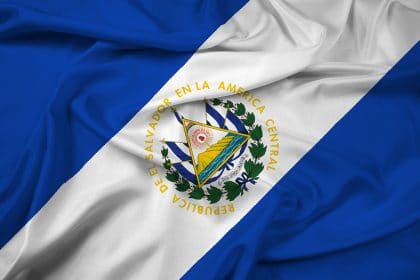Per the laws of El Salvador, salaries, fees, taxes and other payments can be made only via the recognized legal payment methods. Before Bitcoin was adopted, El Salvador had colónes or US dollars as its legal tenders.
While crypto enthusiasts are still savoring the victory of having Bitcoin adopted as a legal tender in El Salvador, the Central American’s country Minister of Labor and Social Welfare, Rolando Castro, has on Wednesday cleared a misconception surrounding the country’s readiness to adopt the digital asset for wages payments.
According to Castro, it was “too premature to talk about wages,” in response to a local report that had said that “his ministry had begun analyzing the possibility of Bitcoin-based salaries with officials from the Ministry of Finance and the Ministry of Economy on Monday.”
The minister went on to reveal that “Monetary issues fall under the economic cabinet” and he is not part of the deciding body, instead he is more focused on finding more jobs for citizens of the country.
Only last week, we reported that El Salvador became the first country to adopt Bitcoin as a legal tender. This move has necessitated some changes and also brought alongside it some complications to the country’s economy.
Per the laws of the land, salaries, fees, taxes and other payments can only be made via the recognized legal payment method. Before Bitcoin was adopted, El Salvador had colónes or US dollars as its legal tenders.
With the addition of the leading digital asset to its legal tender list, it is unclear if the coin would replace or supplement the current law. However, it is important to note that President Bukele’s Bitcoin bill’s draft stated that “tax contributions can be paid in Bitcoin” and “for accounting purposes, the USD will be used as the reference currency.”
According to a previous report from us, “the acceptance of Bitcoin as a legal tender is not targeted at offsetting the role of the Dollar in the country’s payment ecosystem and will serve as the reference point for the new form of money. The issue of volatility is also going to be addressed through a Trust that will be opened at the Development Bank of El Salvador.”
Upon the passage of the bill authenticating BTC as a legal tender, the International Monetary Fund (IMF) had raised concerns over legal and macroeconomic issues. The financial body had stated that its concerns over the “decision is due to the volatility of crypto assets. El Salvador happens to be the first sovereign entity to mark Bitcoin as suitable for a formal means of exchange.”
Already, the Central American country is working on making Bitcoin mining greener as the country’s president approved the use of the country’s volcano to mine the asset.
next

